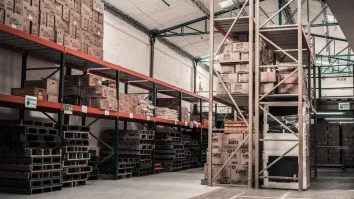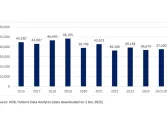
Tokyo Grade B office rents inch up 0.5% in Q4
Shibuya and Shinjuku saw the largest quarterly rise.
Recovery appears to have taken hold in Tokyo’s large-scale Grade B market, with moderate improvements observed in terms of rental level and vacancy over the quarter.
According to Savills, average rents increased by 0.5% QoQ to JPY24,553 per tsubo, which translates to a slight increment on a yearly basis.
Here’s more from Savills:
Quarterly changes were moderate, with most submarkets experiencing some encouraging rental growth. The largest quarterly increments were experienced in Shibuya and Shinjuku at 0.9% and 0.8%, respectively, while more gentle growth was seen in other submarkets over the quarter.
Indeed, some landlords appear to have had the confidence to raise rents in the current recovering market, given the strong appetite for office space and relocations among tenants, on top of the lack of new Grade B office supply in most constituent submarkets in the C5W.
Meanwhile, average Grade B office vacancy tightened by 0.4ppts QoQ in Q4/2023 to 3.6%. Notably, a handful of office properties with moderate amounts of unoccupied space in Shibuya were completely filled over the quarter, and the ward consequently saw the largest decrease in vacancy at 1.4ppts QoQ to 1.1%, which is the lowest level among the constituent wards of the C5W.
Elsewhere, vacancy rates fell in Chiyoda, Minato, and Shinjuku, all by 0.4ppts QoQ. On the other hand, vacancy loosened by 0.5ppts QoQ in Chuo to 5.4%, which can be attributed to a handful of underperforming assets that are either located in peripheral areas or have above-market rents.
There have been relatively few changes in the Grade B office market over the past quarter, and the current trajectory appears to be stable and positive. Overall, the demand for office space has been improving among tenants throughout the year, due to strong corporate performance and greater rates of office attendance in 2023.
Indeed, according to Mitsubishi Real Estate Services, instances of office relocations involving either expanding or maintaining current office footprint sizes increased notably between Q2/2022 and Q2/2023, from 53% and 9%, respectively, to 59% and 22%. In particular, many office expansions have taken place over recent quarters, with many firms proactively increasing their staff headcounts due to improved economic sentiment in Japan, even despite hybrid work arrangements appearing to remain in place.
However, bifurcation by location and age is a persistent issue, and a handful of large-scale Grade B offices located in peripheral areas, such as Harumi in Chuo and Daiba in Minato, continue to experience hurdles in filling vacant space. Struggling properties will be increasingly forced to revise rents and offer other incentives such as longer free rent periods in order to manage this situation.
Nevertheless, encouraging prospects for future nominal growth in Japan, as well as further gradual increments in office attendance, should continue to support recovery in the market, which raises the possibility of further rental growth moving forward.



















 Advertise
Advertise




